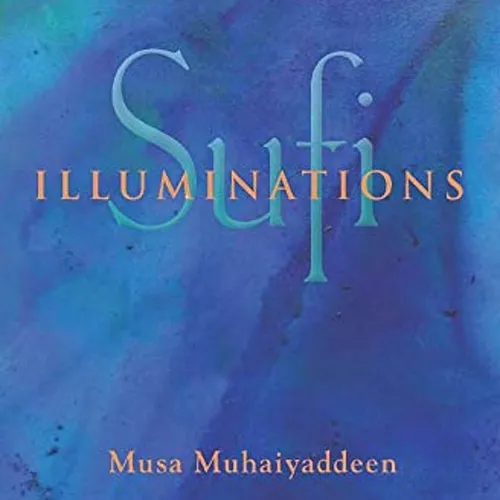#11 Knowledge, Action, State – Part I
- Author
- Musa Muhaiyaddeen
- Published
- Thu 10 Dec 2020
- Episode Link
- http://www.thewitnesswithin.com
May the peace of God be with you, may His grace envelop you and embrace you, may His peace integrate into your being and may you know that peace.
As with most things, the path begins with knowledge. Knowledge is the light that sets you on a path. And like a light that knowledge needs to be used. Used on your own being. A candle can light the way for you or a candle can be kept in one place. You can’t go anywhere in the night if you don’t have some light. And allegorically, this world is in the midst of darkness, it’s in the night. And knowledge is the light that takes us on a path towards understanding. But knowledge has to be used, the fruit of knowledge is action. And action means doing what you have learned through knowledge.
In Sufism, there is a teacher who imparts knowledge to the student. But the knowledge that is imparted is not just words and instructions, it is also the demeanor and the actions of the teacher. It is an understanding of the nature of a being that has gone on the path and has gotten somewhere. Incorporating the action of the knowledge that you have learned into your own life is what transformation is about. And what is this transformation? What does it do to you? It changes your state, it develops a state for you.
So, everyone is looking for peace in their existence. Well, peace is available, but it needs to be worked for. We need to know how to obtain peace. We need to know the actions that we have to do to obtain peace. And what are these actions? They begin with moral code that underlies what we do. In other words we begin to truly understand the difference between right and wrong, and we do what’s right in an appropriate way and we stay away from what’s wrong. All of the religions have this moral code. In Islam it is called the sharī‘at. In Catholicism it’s called the cannon law. In Judaism it is called chalacha. But it is a set of rules and regulations that you need to follow, that you need to incorporate.
The teacher teaches something else besides just the rules and regulations. The rules and regulations can be taught and untaught at the earliest phases. The next phase is to begin to understand what love is and to incorporate love into your being so that you become a being who loves. Now, this is a big step because now we go on an intellectual knowledge of things to actually acting out. But acting out what? Acting out certain qualities.
In Islam, there are ninety-nine names for God. These ninety-names represent the qualities of God. These ninety-nine names represent the space that you can go into, a state of compassion, a state of mercy, a state of gratitude, a state of patience. One needs to understand these ninety-nine names and what they represent. There is a book called, The Asmā’ul Husnā, by M. R. Bawa Muhaiyaddeen, which lists the ninety-nine names, one needs to obtain this book and read it and find out what those qualities are. Then one needs to begin to practice being those qualities. To practice integrating those qualities into your life, slowly at first, until they actually become the qualities that you are.
Now, these things can’t be measured, they can’t be weighed, but they can be assessed just by looking at somebody that has them. They show up in a person’s face, they show up in a person’s voice, they show up in a person’s temperament, and they change states. An angry person stops being angry and becomes patient. A hateful person becomes forgiving. There is an alteration in the chemistry of our being, so knowledge leads to action. Action leads to a state. And it is a state that we can be peaceful with. It is a state that we can be kind with. It is a state that loves. And we can develop these states. But to do that we have to control our being until these states become our norm.
